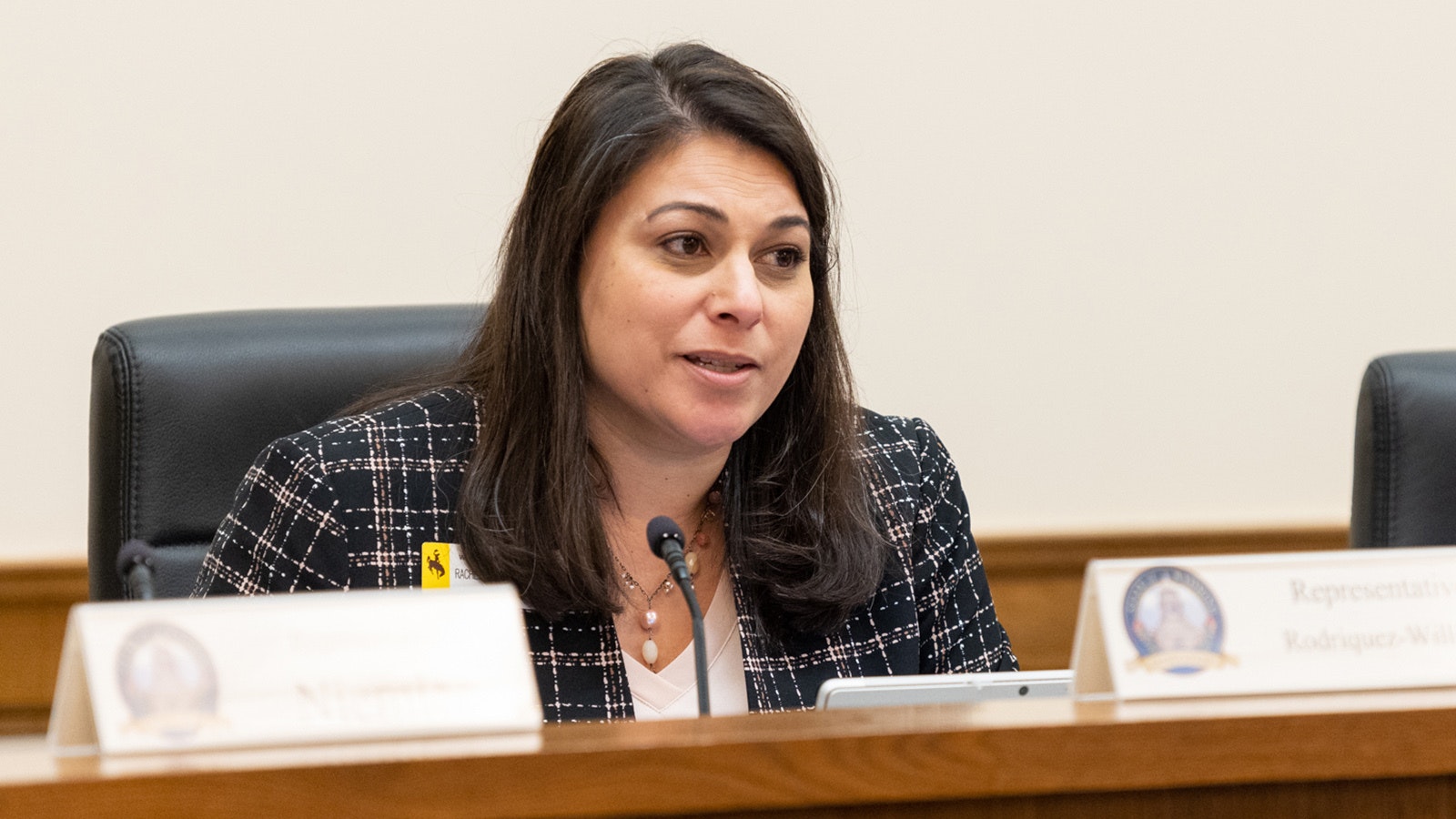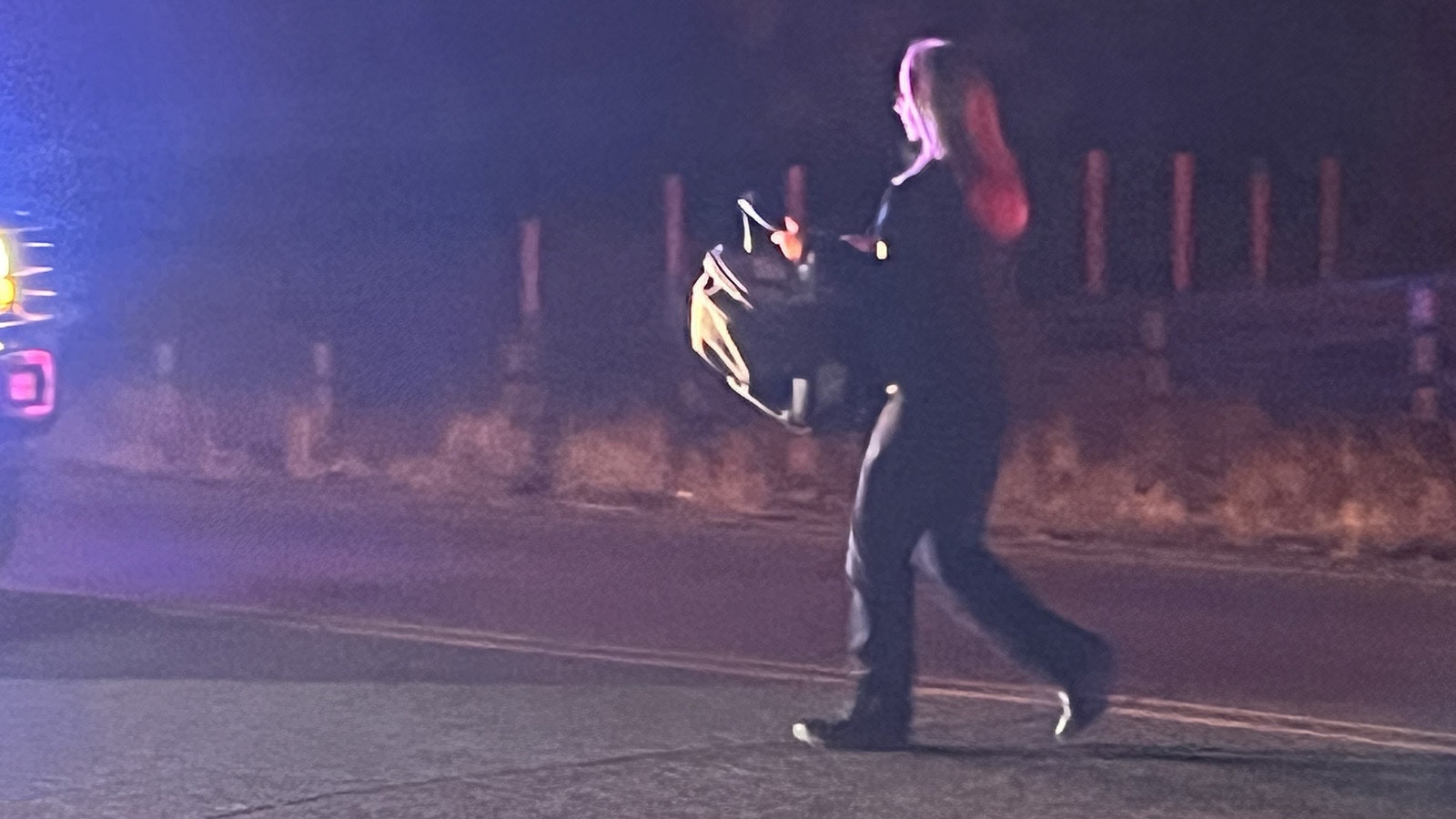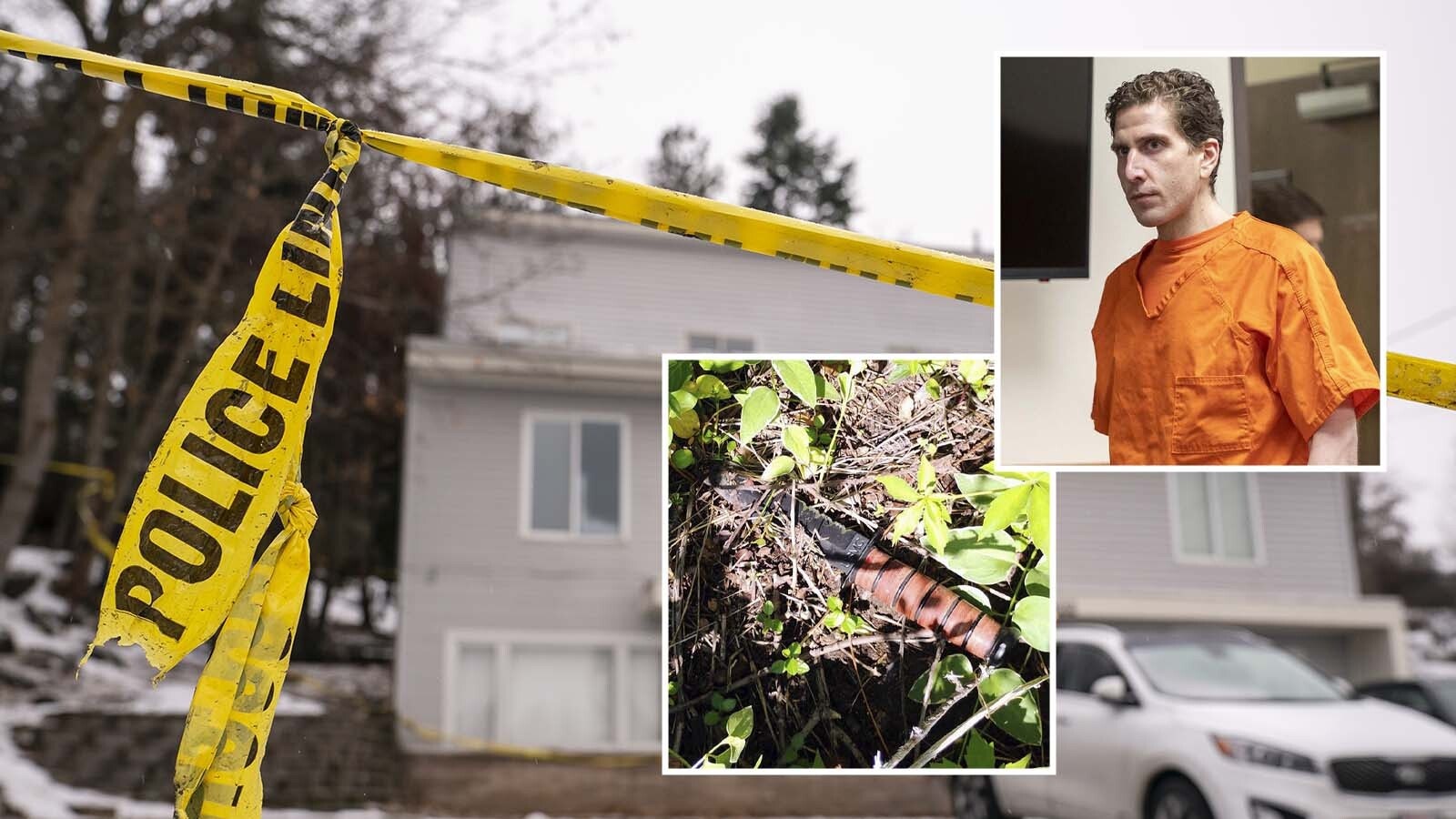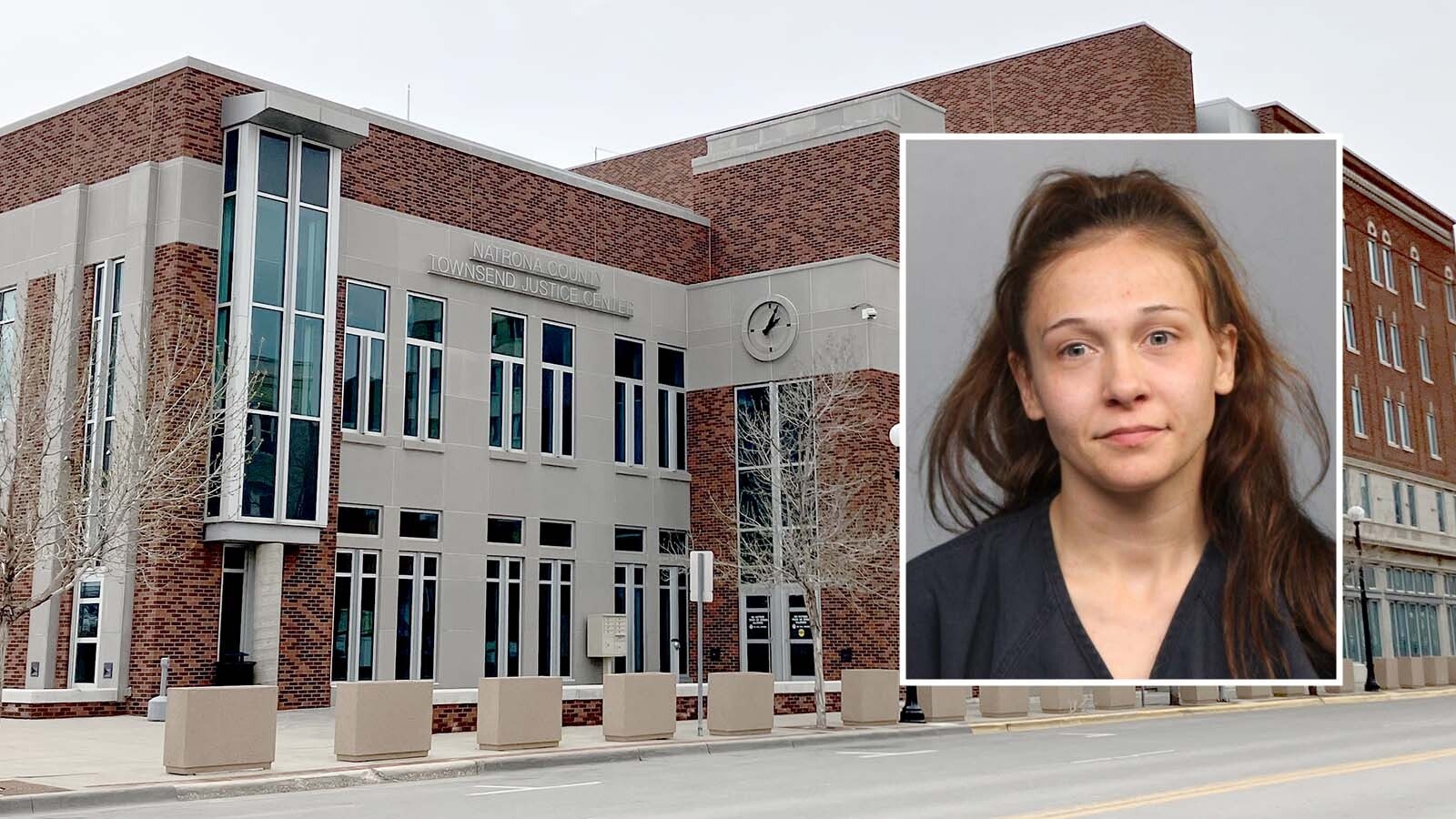Supported by a number of Wyoming lawmakers, the “Life is a Human Right Act” is a roaring retort to judicial concerns surrounding the state’s abortion ban, which has been blocked from enforcement.
The act, House Bill 152, is written to address concerns about last year’s Wyoming “trigger ban” that has been paused in court during a lawsuit against it.
The new bill would ban abortion altogether except in cases involving risks of death or serious injury, and it could prevent abortion providers from establishing private clinics on the Wind River Indian Reservation.

‘Reasonable Medical Judgment’
After the U.S. Supreme Court in June 2022 proclaimed that there is no federal constitutional right to abortion, which effectively overturned the landmark 1973 U.S. Supreme Court’s Roe vs. Wade ruling, Wyoming’s trigger ban became law. The law was designed to “trigger” a ban on abortion in Wyoming in the event Roe vs. Wade were overturned.
But in its first hours on the books, the Teton County District Court blocked the law from being enforced in light of safety and culpability concerns brought by a pro-choice coalition.
The plaintiffs in a lawsuit titled Johnson vs. Wyoming argued that the law could jeopardize the freedom and careers of well-meaning doctors in potentially fatal pregnancy crises, and also could endanger women in those situations.
The trigger ban would have allowed abortions in cases of possible death or serious injury to the mother, as well as rape and incest. But when rationalizing a temporary block against it, Judge Melissa Owens in July described the trigger ban as dangerously ambiguous because it did not give doctors’ medical judgment enough leeway in those situations.
“The fact that someone currently pregnant (could) end up having a life-threatening complication and the new statute does not mention health care providers’ appropriate medical judgment, what the … statute did creates an ambiguity, not only for (plaintiff) Dr. Anthony but for the patient,” Owens said at the time.
Owens also indicated that abortion may be deemed “health care” under the Wyoming Constitution, which promises Wyomingites the right to make their own health care decisions.
The case against the trigger ban is ongoing. Abortion before the point of fetal viability remains legal in Wyoming.
Roaring Retort
The Life is a Human Right Act redefines abortion as a physician or other person’s act against a woman.
It removes women from criminal culpability under Wyoming’s abortion law, while implementing possible felony prosecution against doctors or others who perform abortions, punishable by up to five years in prison and $20,000 in fines.
This is an about-face from the current law, which names expectant mothers as possible guilty parties under criminal abortion charges.
HB 152 gives an exception to doctors in crisis situations exercising “reasonable medical judgment” – an overt response to the court’s concerns against its trigger ban predecessor.
Doctors under the new bill would not be found culpable for performing a pre-viability abortion on women to prevent death or serious injury, within the realm of their “reasonable medical judgment” and after making “reasonable medical efforts” to save both the mother and infant.
They also would be exempt from prosecution if regular medical treatment to a woman resulted in “accidental or unintentional” injury or death to the unborn infant.

Reservation
After the Supreme Court reversed the national right to abortion, multiple pro-choice congressional delegates called for abortionists to establish clinics on federal lands in anti-abortion states.
In central Wyoming, the Wind River Indian Reservation falls under tribal and federal jurisdiction. Non-native people, including doctors, are generally chargeable for state crimes committed on the reservation, but tribal members typically are not subject to state laws while on the reservation.
Under the law now, American Indian doctors could establish abortion clinics on the reservation despite a Wyoming abortion ban.
However, even doctors operating on the reservation require state-issued medical licenses to operate private clinics.
A state medical license is not required for doctors working in federal facilities, but federal law still prohibits federal funding of abortions under the Hyde Amendment.
House Bill 152 would make performing abortions a form of “unprofessional conduct” for which the Wyoming Board of Medicine could revoke a doctor’s license following investigative due process. Any person could file an abortion claim against a doctor under the act, or the board could initiate its own complaint.
Is It Health Care?
When placing a longer block, or injunction, on the enforcement of Wyoming’s trigger ban, Judge Owens said the court is likely to see abortion as “health care” under the Wyoming Constitution.
“Reasonable persons could consistently and predictably agree that an abortion is a procedure, usually provided by a medical professional, that impacts a woman’s physical, mental or emotional well-being,” wrote Owens in her order. “The court could find that the decision to have or not have an abortion procedure is unambiguously a health care decision.”
Article 1, Section 38 of the Wyoming Constitution guarantees that competent adults can make their own health care decisions and parents can make such decisions for their children.
A subsection in the clause stipulates that the Wyoming Legislature can determine “reasonable and necessary restrictions” on such health care rights to protect “the health and general welfare of the people” or to accomplish other purposes set forth in the state Constitution.
HB 152 emphasizes that caveat by drawing attention to the state Constitution’s guarantee of equal protection for all people, and by highlighting the Legislature’s ability to restrict some “health care” measures.
“Abortion as defined in this act is not health care,” the act states. “(It) is the intentional termination of the life of an unborn baby (and) is within the authority of the state of Wyoming to (prohibit it).”
However, HB 152 sponsor Rep. Rachel Rodriguez-Williams, R-Cody, told Cowboy State Daily that she has not heard of any efforts by the Legislature to initiate ballot initiative asking voters to specify in the Constitution that abortion should not be considered health care.
Public Funds, Odds And Ends
If it passes the Legislature, the bill would remove criminal exemptions for people who end pregnancies conceived in rape or incest, while keeping exemptions in cases of death or serious injury risks.
It also would allow women on whom abortions have been performed to sue their abortionists and would forbid the use of state money for abortions altogether.
The law currently allows state funds to be used for abortions in cases of rape or incest.
The bill stipulates that treatments of ectopic pregnancies and natural miscarriages would not be considered criminal abortion acts.
It specifies further that it shall not be used to ban contraceptives of any kind.
The List
The state House of Representatives received HB 152 for introduction on Tuesday. The bill has not yet surfaced for a committee discussion or floor vote.
Its cosponsors are many, and are all Republicans:
These include Reps. Ocean Andrew (Laramie), Abby Angelos (Gillette), Dalton Banks (Cowley), John Bear (Gillette), Jeremy Haroldson (Wheatland), Scott Heiner (Green River), Ben Hornok (Cheyenne), Mark Jennings (Sheridan), Christopher Knapp (Gillette), Chip Neiman (Hulett), Tony Niemiec (Green River), Jared Olsen (Cheyenne), Pepper Ottman (Riverton), Sarah Penn (Lander), Daniel Singh (Cheyenne), Allen Slagle (Newcastle), Scott Smith (Lingle), Clarence Styvar (Cheyenne), Jeanette Ward (Casper), Art Washut (Casper) and John Winter (Thermopolis).
Sponsoring Senators include Sens. Bo Biteman (Ranchester), Brian Boner (Douglas), Anthony Bouchard (Cheyenne), Evie Brennan (Cheyenne), Dan Dockstader (Afton), Tim French (Powell), Dan Furphy (Laramie), Lynn Hutchings (Cheyenne), Bob Ide (Casper), Dan Laursen (Powell), Troy McKeown (Gillette), Tim Salazar (Riverton), Wendy Schuler (Evanston) and Cheri Steinmetz (Lingle).





